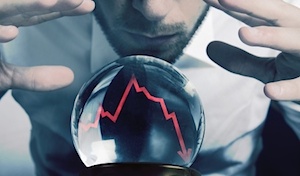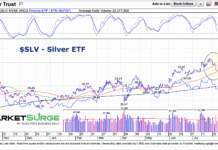Over the last six months I have taken the position that global growth has been slowing and that it will result in slowing growth here in the United States. Keep in mind that I am not saying that the US economy is going to enter into a recession. Instead, I am referring to the rate of change and the slope of the growth curve. Growth slowing means that the economy can continue to grow but it is growing at a slower rate. Slowing growth means that there is less demand for goods and services generally which makes it harder for companies to continue to grow their sales and profits.
China just released numbers that confirm that their economy is slowing quickly. It was expected that China’s March export numbers would be 12% higher than the previous month. Instead, the actual number revealed a 15% drop in year-over-year exports. That is a 27% miss to the downside. China’s imports were equally dismal falling 12.7% year-over-year. These numbers do not bode well for global growth.
However, stock markets nowadays aren’t tracking with a countries underlying economy. On terrible economic news China’s Shanghai Composite (SSEC) went UP 2.17% and their market is up 27.42% year-to-date. Their market went up on the bad news because investors believe that China will be forced to further stimulate the economy in hopes of spurring growth.
Across the board, there seems to be a huge disconnect between economic and stock market performance. With the S&P 500 near all-time highs, the U.S stock market doesn’t seem to be phased by prospects of slowing growth. And China is but one of many other similar examples.
A common theme seems to be emerging as global growth slows.
All of the world’s major economies are following the same ‘stimulus’ playbook that Japan has been following for over 30 years. Yet Japan still has not been able to achieve their inflation targets nor economic growth. This is the same playbook, by the way, that resulted in the stock market crash in 2000 and 2008. It appears that yet another bubble is emerging; however, no one knows exactly when it will pop. Since there is considerably more leverage in the markets now than there was in either 2000 or 2007 it is reasonable to assume that when the next crash happens that it could be even more severe than what we experienced in 2000 and 2008.
That should be a sign of caution for those nearing or in retirement. Priority number one for retirees is to avoid a significant loss. It is time to ensure that you are not in a position where you could lose 20-30% or more of your assets in the next crash it is unlikely that you will ever recover.
Have a great week.
Jeff’s Trending Indicators
US Stock Market Trending Up
US Bond Yields Yields Trending Down (means prices go up)
Follow Jeff on Twitter: @JeffVoudrie
Any opinions expressed herein are solely those of the author, and do not in any way represent the views or opinions of any other person or entity.








